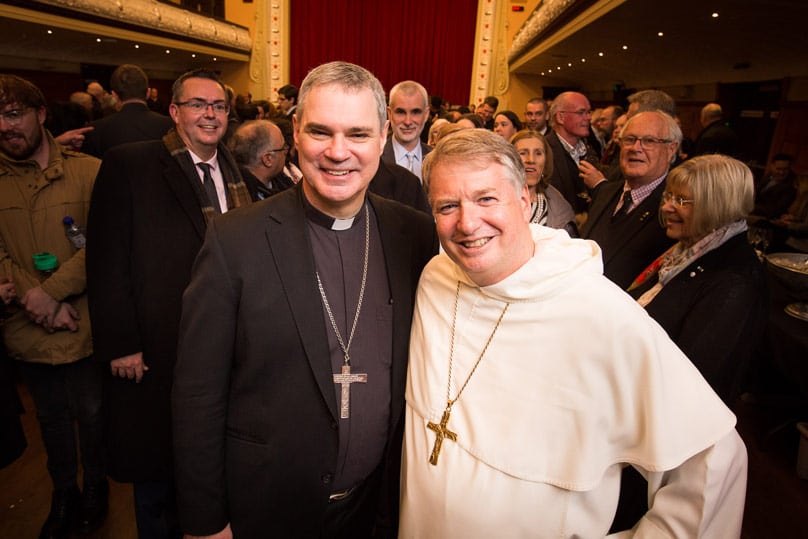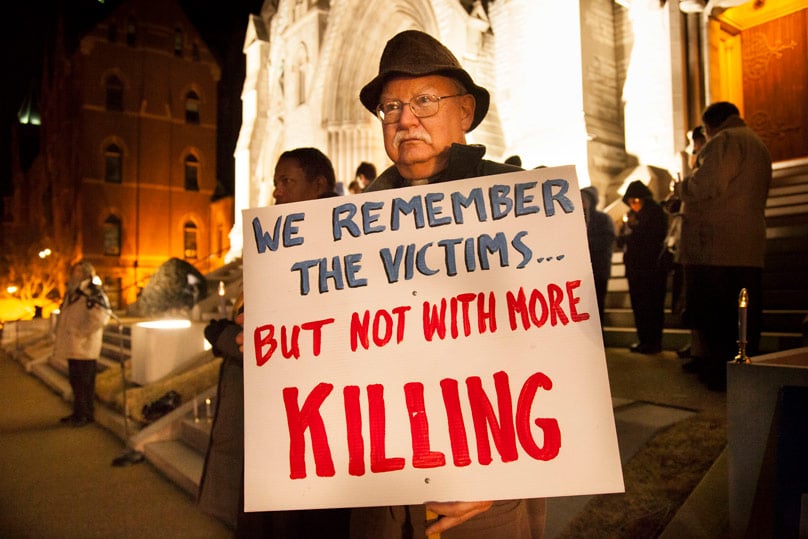
By CNS and Catholic Weekly staff
Archbishop Anthony Fisher OP welcomed Pope Francis’s revision of the Catechism of the Catholic Church on the death penalty, saying it demonstrated the consistency of the Catholic Church’s ethic on the sanctity of all human life.
“Some theologians used to teach that capital punishment was permissible: in expiation for the wrongdoer’s crime, to secure the safety of the community by removing a dangerous wrongdoer, and to deter others,” he said last Friday after the announcement of the Holy Father’s revision.
“Some compared it with amputating a diseased limb.
“But since at least Pope St John XXIII and especially Pope St John Paul II, the Church has increasingly rejected any killing that is not self-defensive, and insisted that no modern community needs to kill its own members out of self-defence.
The pope’s move, Archbishop Fisher said, represented a move forward in Church thinking.
“Reflecting this continuing development of doctrine, Pope Francis has now taught that the death penalty is contrary to reverence for the human dignity (and image of God) that remains even in grave criminals.
“Other forms of appropriate punishment and community security are available. Our Church is pro-life all the way!”

In the revision he ordered, Pope Francis said the Catechism must assert “the death penalty is inadmissible because it is an attack on the inviolability and dignity of the person” and to commit the church to working toward its abolition worldwide.
The catechism’s paragraph on capital punishment, 2267, already had been updated by St John Paul II in 1997 to strengthen its skepticism about the need to use the death penalty in the modern world and, particularly, to affirm the importance of protecting all human life.
Announcing the change on 2 August Cardinal Luis Ladaria, prefect of the Congregation for the Doctrine of the Faith, said, “The new text, following in the footsteps of the teaching of John Paul II in Evangelium Vitae, affirms that ending the life of a criminal as punishment for a crime is inadmissible because it attacks the dignity of the person, a dignity that is not lost even after having committed the most serious crimes.”
Evangelium Vitae (“The Gospel of Life”) was St John Paul’s 1995 encyclical on the dignity and sacredness of all human life.
The encyclical led to an updating of the Catechism, which he originally promulgated in 1992 and which recognised “the right and duty of legitimate public authority to punish malefactors by means of penalties commensurate with the gravity of the crime, not excluding, in cases of extreme gravity, the death penalty.”
At the same time, the original version of the catechism still urged the use of “bloodless means” when possible to punish criminals and protect citizens. The catechism now will read: “Recourse to the death penalty on the part of legitimate authority, following a fair trial, was long considered an appropriate response to the gravity of certain crimes and an acceptable, albeit extreme, means of safeguarding the common good.
“Today, however, there is an increasing awareness that the dignity of the person is not lost even after the commission of very serious crimes.
“In addition, a new understanding has emerged of the significance of penal sanctions imposed by the state.
“Lastly, more effective systems of detention have been developed, which ensure the due protection of citizens but, at the same time, do not definitively deprive the guilty of the possibility of redemption,” the new section continues.
Pope Francis’ change to the text concludes: “Consequently, the church teaches, in the light of the Gospel, that ‘the death penalty is inadmissible because it is an attack on the inviolability and dignity of the person,’ and she works with determination for its abolition worldwide.”
In his statement, Cardinal Ladaria noted how St John Paul, retired Pope Benedict XVI and Pope Francis had all spoken out against capital punishment and appealed for clemency for death-row inmates on numerous occasions.
The development of church doctrine away from seeing the death penalty as a possibly legitimate punishment for the most serious crimes, the cardinal said, “centres principally on the clearer awareness of the church for the respect due to every human life.
Along this line, John Paul II affirmed: ‘Not even a murderer loses his personal dignity, and God himself pledges to guarantee this.’”
Pope Francis specifically requested the change to the catechism in October during a speech at the Vatican commemorating the 25th anniversary of the text’s promulgation. – cns
